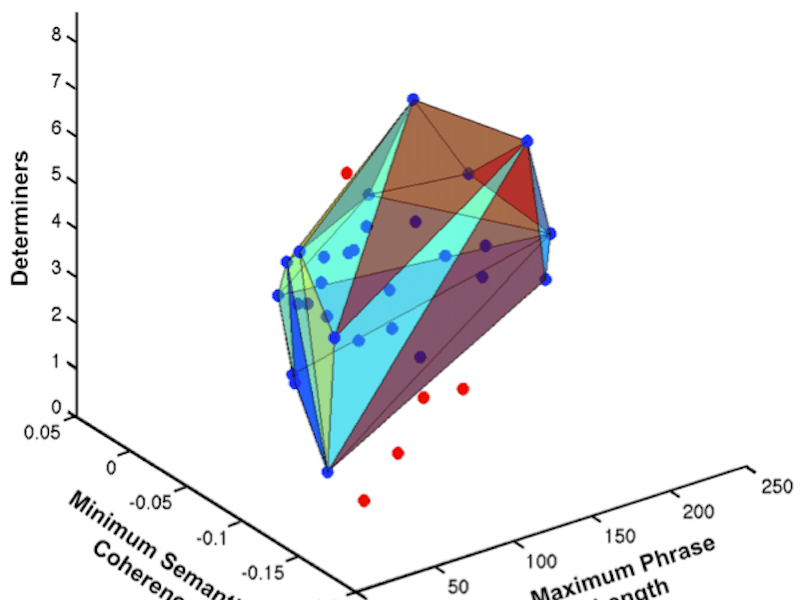This Computer Can Detect Schizophrenia by Listening to You Talk
A way to predict psychosis in at-risk young people.

Predicting schizophrenia and other forms of psychotic illness is damn hard work. Unless there’s a history of mental illness that runs in your family, doctors pretty much have to wait until symptoms manifest — which can be a terrifying experience for not just patients, but friends and family as well who may be caught completely off-guard by what’s happening.
But after two-and-a-half years of research, we might have a chance to prepare individuals for treatment ahead of time. A team of researchers from Columbia University Medical Center, New York State Psychiatric Institute, and the IBM T.J. Watson Research Center were able to develop an automated computer program that analyzes human speech and predicts whether an individual is likely to develop psychosis later in life.
We already know that schizophrenia affects about one percent of the population almost anywhere in the world. People typically start to show symptoms between the ages of 14 and 27, where they are considered to be at clinical high risk (CHR). Often in life, CHR individuals will also show signs of unusual or tangential thinking, perceptual changes, and express suspicious thoughts about authority figures or others. Almost 20 percent of CHR individuals experience a full-blown psychotic episode.
That’s who the research team wanted to focus on — the 20 percent. The goal was to identify who falls into that category before the episodes start to occur.
And speech is a very good way of digging into that window. Speech patterns are often very characteristic of a person’s mental state. So the research team had participants take part in an open-ended, narrative interview that focused on descriptions of subjective experience.
Meanwhile, a specially-designed computer program was listening in, searching for particular speech patterns in meaning and structure that could perhaps give clues about the participant’s mental state. This included analyzing how well the participant stayed on topic, phrase length, and specific words used to link phrases together. A clinical psychiatrist might normally just pick up on things as signs of disorganized thought, but a computer would be able to measure these variables with precision.
The biggest predictors for psychosis included breaks between sentences that interrupted meanings, and shorter phrases that didn’t explain thoughts very well. The computer analysis correctly differentiated between healthy individuals and those who would later experience a psychotic episode — all by quantifying subtle patterns in speech.
A lot more research will be needed before psychiatrists can start using speech analysis to predict schizophrenia, but this first study is a pretty groundbreaking look at how it can work effectively. At the very least, you may want to pay a little closer attention the next time you find your friend losing their train of thought.